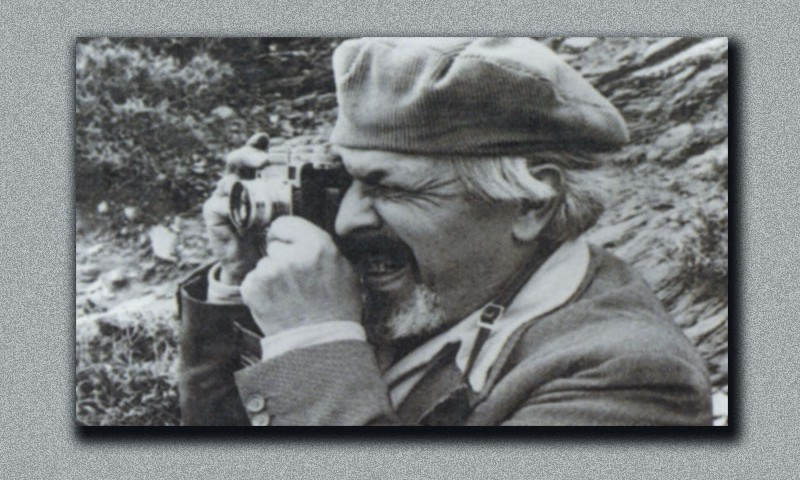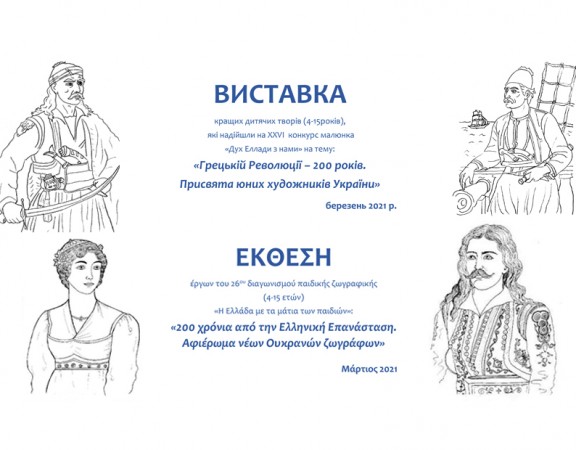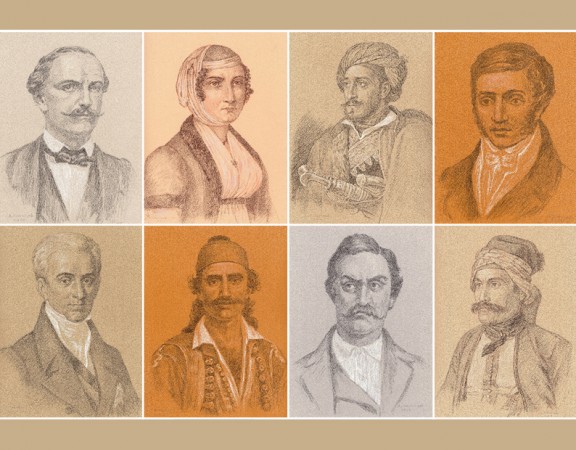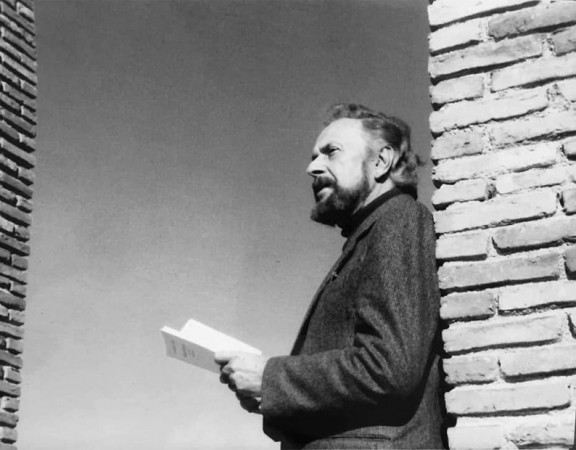In celebration of the Greek Independence Day, on March 23, 2018, at 16:00 the Branch of the HFC will open the flatbed photographic exhibition “No rules, no borders. Andreas Embirikos (1901-1975)”.
Andreas Embirikos is the first Greek surrealist poet and the first psychoanalyst, novelist, and photographer. He was among the brightest literature personalities of the generation of the 1930s such as Giorgos Seferis, Odysseas Elytis, and Yiannis Ritsos.
A. Embirikos was born on September 2, 1901, to the family of one of the richest and most influential ship-owners of the time, Leonidas A. Embirikos, who founded the National Shipping Company of Greece with headquarters in Piraeus in 1909. In 1908 the family settled in Athens.
After graduating from a high school, Andreas served in the navy. He survived the divorce of his parents, began to study at the Faculty of Philosophy of the University of Athens, and then moved with his mother to Lausanne.
The following years, Embirikos studied at the King’s College in London and completed his education in Paris.
It was Andreas’s mother, Stephanie, who strongly influenced the development of the poet’s personality. She was half-Russian, and her mother, Sofia Solomonis-Kovalenko, was from Kiev. Until 1914, Andreas spent each summer at the estate of the relatives of his mother in the Crimea. Another source of influence was a direct acquaintance with the masterpieces of Russian humanitarian culture. He spoke the language well, and there was a huge library of Russian literature in the house. “My spiritual baptism occurred with Leo Tolstoy. He touched me deeply“. The poet especially distinguished the works of Blok, Mandelshtam, Yesenin, and valued Lermontov above Pushkin.
Emirikos started his poetic experiments at the age of 10, but he made the decision to devote himself entirely to the literary career after unsuccessful attempts to continue his father’s family business. “I did not want to disappoint my father, to whom I felt very grateful. I resigned and devoted myself entirely to literature and psychoanalysis“.
“His emotional relaxation in verses began so early that at the age of twenty he already had many poems written under the influence of other writers … especially Kostis Palamas” (O. Elitis).
His main interest in psychoanalysis and surrealism, according to Embirikos, was finalized in Paris due to his acquaintance with René Laforgue (1926) and Andre Breton (1927).
Surrealism, the ideologist of which was Andre Breton, is known to be based on the psychoanalysis of Sigmund Freud.
Until the mid-1930s, there was no school of psychoanalysis in Greece. The first society of psychoanalysts was established in Greece in 1946 by Marie Bonaparte.
In 1935, Embirikos returned to Athens and was the first to begin psychoanalytic practice. In the same year, he read a lecture “On Surrealism”, and there was published a collection of automatic texts, which marked the beginning of a new stage in the history of Greek literature. Since then, Andreas Embirikos has become the “guru” of Greek surrealism.
The legacy of Embirikos as a psychoanalyst is rather small, and almost all of his works are written in French. After 1950, he left clinical practice, but he always maintained contacts with his foreign colleagues and followed the scientific life. He participated in the international conferences on psychoanalysis (1949, 1951), and was elected member of the Psychoanalytic Center of Paris (1950). It is noteworthy that, with the exception of an interview posthumously published in 1967, the first Greek psychoanalyst never mentioned his activities in this field.
However, since surrealism aimed at the absolute transformation of the world through the final liberation and renewal of man, literature became one of the means of propaganda and realization of this idea. Due to the fact that in Greece surrealism failed to become such an organized movement, as it was, for example, in France, it was realized more as an artistic activity. This is why the works of the Greek surrealists are somewhat rhetorical in their character. In the works of Andreas Embirikos, practical and theoretical principles are intertwined in such a way that it is impossible to draw a clear boundary dividing the various areas of his activity.
Of interest is his original approach to the publication of his works. Except for various publications of specific works, during his lifetime, there were published only three his books: “Blast Furnace” (1935), “Hinterland” (1945, the poetry of 1934-1937) and “Writings or Personal Mythology” (1960, the texts of 1936-1946).
Literary works of Embirikos
From the formal point of view, the books of Embirikos, his literary work can be divided into three categories:
poems – “Blast Furnace”, “Hinterland”, “Today as Tomorrow and as Yesterday”
mixed texts – ” Writings or Personal Mythology”, “Oktana”
prose works – “Argo or Aerostat Flight”, “Zemphyra or The Secret of Pasiphae” and the multi-volume novel “The Great Eastern”.
The last-mentioned novel, where in eight volumes the author describes the voyage of a gigantic transatlantic liner, is truly unique for Greek literature. It is still the subject of discussions about the boundary between an artistic text and pornography, for there are many scenes of sexual character in the novel. The author, who worked on this novel for 25 years, realized this controversy, and he granted his son the right to decide the fate of his novel.
“The Great Eastern” (written from 1945 to 1951) originally consisted of 1700 manuscript pages, but the author kept supplementing them with new chapters for the rest of his life. It was published in eight volumes by Agra Publishing House in 1990-1992.
All the works of Embirikos complement each other and represent a kind of guide to the inner world of the poet. The text “Amour, Amour” (1939), which opens the above-mentioned book “Writings or Personal Mythology” is considered as the author’s personal manifesto. His personal mythology is the product of the synthesis of cultural traditions of antiquity and modernity. Like a mirror, it reflected the centuries-old path not only of the Hellenic but also of the world civilization.
Characteristic of the adaptation of surrealism in Greece is the rejection of its original engagement. Embirikos compiled his collections of works with no regard to the chronological order. Most of them consist of poems written in different periods of life. The peculiarity of their composition lies in the fact that the key themes of the first book develop in each new collection, acquiring an increasingly universal character, but each of them has its own ideological center, its own philosophy. In the works of Embirikos, there are often distinguished three semantic layers: heroic (embodying the dream of destroying the old world and the onset of a new world order), erotic and religious. All of them are closely intertwined with each other, and there is a clear correspondence with the three main guidelines of the French surrealism – revolution, love, and mysticism. The only difference is that this new world of Embirikos is, as André Breton put it, “the future combination of two conditions, those of dreams and reality“.
Embirikos was not a religious man, but he was not an atheist either. His beliefs are partly embodied in the image of the protagonist of his story “Argo or Aerostat Flight “, the Russian admiral and the secret counsellor of Tsar Vladimir Verkhoy, who, being accused of atheism, answers: “I’m not a Christian and I can never become one, but I’m not atheist either. For me, God exists everywhere and always“.
Embirikos traveled a lot, and at his young age, he dreamed of going around the world on a ship.
In 1962 Embirikos, Elytis, writer Yorgos Theotokas and doctor Tadanasis traveled to the Soviet Union (Odessa-Moscow-Leningrad) at the invitation of the Greco-Soviet society. After this trip, he wrote a poem “ES ES ES ER Rossia” (Agra, 1995), though in his diary he wrote that the visit to the USSR disappointed him. Recently, in the archives of Embirikos, there were discovered 29 poems devoted to the October Revolution and communist ideas, which he wrote before 1935.
Nikos Engonopoulos wrote about Embirikos that “His knowledge of everything is boundless, his passion for poetry, art, and beauty, his judgments are as irreproachable as the depth of his character. His natural kindness, his elegance without prejudice and bias made him a valuable, charming and inexhaustible companion“. In his house, Emirikos organized exhibitions of a major folk painter Theophilos Hatzimihail and the surrealistic works. He did translations, collected post stamps, and took a great passionate interest in photography.
The exhibition of his photographs in the Ilisos Hall in 1955 featured 210 photographs showing cities and their inhabitants. These included pictures of Paris, London, and Geneva, views and landscapes from Andros, Paros, Mykonos, Santorini, England, France, and Switzerland as well as portraits. There are many thousands of photo negatives in the archive of Embirikos.
“The purpose of our life is the wise recognition of our life and every desire we have in any place at any moment in every hot, vital desire” (A. Embirikos)







